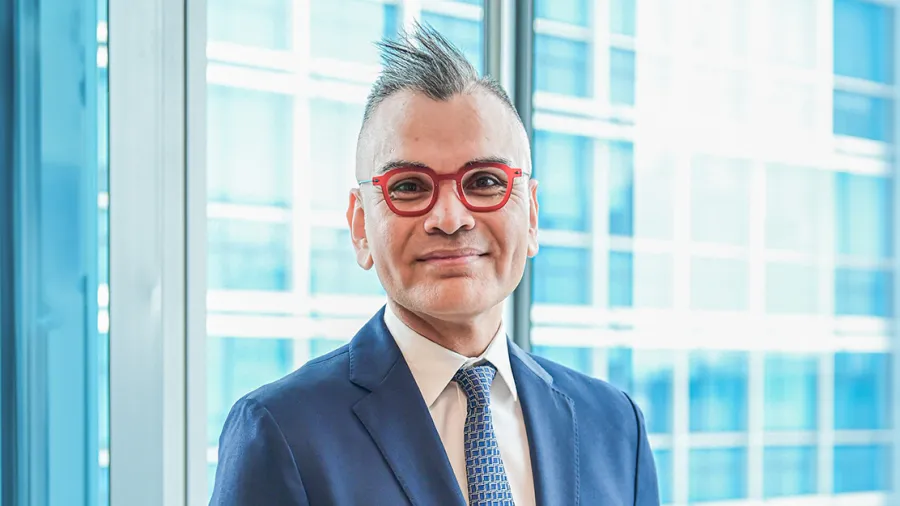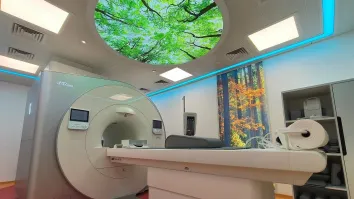
AI-powered healthcare intel to enhance treatment priorities in Malaysia
The Malaysia Healthcare Travel Council is working with industry players to look at the best practices for AI.
With AI taking centre stage in healthcare, hospitals, which are already hurt by cybersecurity issues, are advised to be more responsible in using AI for treatment.
This is why the Malaysia Healthcare Travel Council (MHTC), together with industry players, is forming the Malaysia Healthcare Intel (MHI) as part of its digitalisation initiatives to enhance healthcare delivery in the market.
“[AI] will look at how we can create predictive data in the future specifically to understand the new demands and the new needs of patients around the region. Through the [MHI] system, it will allow us to have a clear pathway to which treatment type we should be focusing more on and addressing the markets that require those treatment types,” said MHTC Interim CEO Farizal Jaafar.
The intel is still in the pipeline but MHTC, a Malaysian Ministry of Health (MOH) programme that promotes the Malaysia healthcare brand, has also introduced other digitalisation initiatives to improve healthcare travellers’ experience and treatment in the Southeast Asian country.
This includes the healthcare one-stop portal or OSP, which serves as Malaysia healthcare’s digital front door providing comprehensive information to facilitate seamless planning for healthcare travellers.
The OSP also promotes healthcare travel industry advancement and MHTC is developing integrated resource platforms such as the Malaysia healthcare resource, and an all-in-one integrated repository, providing insights into Malaysia’s healthcare travel industry and informed decision-making.
Another MHTC initiative is the flagship medical tourism hospital programme. This platform eyes to raise global healthcare icons and set new standards in medical and service excellence, and international branding for healthcare with the support of the MOH and independent program assessors like Joint Commission International and IQVIA, which unifies the hospital network into a communication and collaboration platform.
The programme has shortlisted four finalists through a 51-perimeter assessment. The finalists include National Hair Institute, Island Hospital, Mahkota Medical Center, and Subang Jaya Medical Center and are currently “undergoing a three-year calibration plan through structured masterclasses mentorship, and customized acceleration program development,” Jaafar said.
Complement not compete
In Southeast Asia, Malaysia, Thailand, and Singapore are the top medical destinations. Based on experts’ observations, Thailand and Malaysia are markets that offer cheaper medical checkups.
“Treatment costs are significantly affordable, regulated by a fee schedule and ceiling prices, making it a cost-effective option compared to other regional countries,” said Jaafar.
However, he noted that they see every nation as a complementing component to develop the regional strength of the Association of Southeast Asian Nations (ASEAN) as a destination for healthcare travel.
“Whilst Singapore may be strong in certain areas, Malaysia is also focusing on areas where we also bring up the key deliverables in terms of medical excellence, service excellence, and international branding,” said Jaafar.
On the demands of medical tourists, Jaafar said the MHTC and its stakeholders offer “hyper-personalised and customised services to patients.”
“One such example is through our premium wellness packages, which combines premium healthcare screening with wellness experiences and exciting tourism with exciting tourism adventures,” Jaafar elaborated.
Addressing the demands of medical tourists also includes accelerating the investment and adoption of digital tech, said Jaafar.
In a separate statement, MHTC said Malaysia has been striving to achieve global recognition for its quality care.
This is particularly true for an oncology department at a Malaysian hospital, which offers services from chemotherapy, targeted therapy, and immunotherapy to specialised radiotherapies such as intensity-modulated radiotherapy (IMRT)/ volumetric modulated arc therapy (VMAT), intraoperative radiotherapy (IORT), stereotactic radiosurgery, stereotactic body radiotherapy, and gamma knife.
Outlook
Looking ahead, the MHTC sees that the healthcare travel sector will continue to spur demand for curative treatments such as cardiology, fertility, oncology, orthopaedics, and neurology.
Jaafar said they are also seeing a growing interest in preventive care, encompassing wellness, aesthetics, and dental services.
“We are confident that there will be a continual rise in demand for both curative and preventive healthcare solutions,” he said, adding that such is the forecast until 2025.
For the first half of 2023, Malaysia’s healthcare travel sector reported close to MYR1b (US$219m) and the MHTC is optimistic about generating a revenue of MYR7b (US$1.5b), a spillover economic impact valued at almost MYR30b (nearly US$6.5b).



















 Advertise
Advertise







